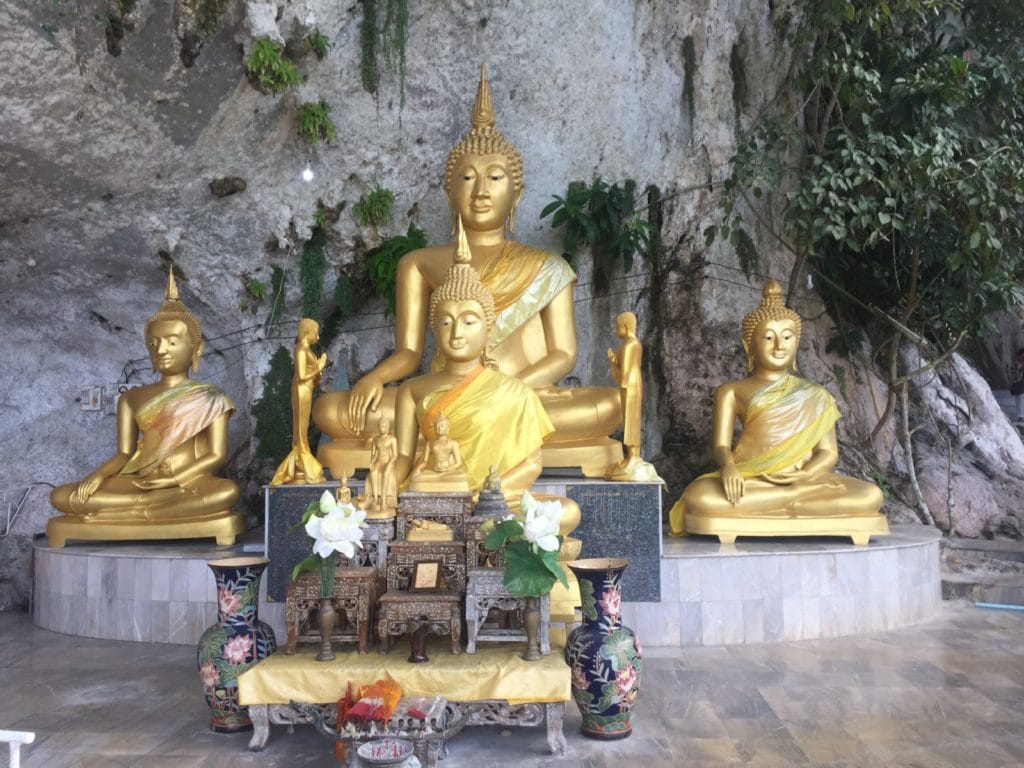Mindfulness in everyday life is the concept I wanted to master.
Living in Thailand for more than three years, I noticed some profound differences in how people perceive moral values. Not as much as that they are different. In fact, they are more or less the same, universal. But the way how to follow them and how to obtain your inner peace is different. I would say that in Eastern tradition, there is much more inner “duty” to have to follow those rules. There is no external judge or punishment. It would be interesting to learn why other cultures or religions use a lot more enforcement to achieve desired moral behavior.
The basics of Buddhist teaching starting for “The four noble truths” and “The noble eightfold path.” The next step in embracing the Buddhist philosophy is to take the five precepts, which are the set of recommendations on how to lead your life to reach your inner peace.
The Four Noble Truths
Very shortly and without too many explanations, these are the Four Noble Truths:
1. Life consists of suffering and unsatisfactoriness. That is not to say that the whole life is grim. It is to say those bad things are the natural part of our lives.
2. Suffering arises from the process of identification through which we try to make internal and external things and experiences into “me and mine” or wholly ‘”other” than Me. It is the craving that makes us suffer.
3. There is a way to end suffering and achieve peace of mind, which is Nirvana or Nibbana. Ultimately Nirvana is beyond conception and intellectual understanding. Full understanding only comes through direct experience of this state, which is beyond the limitations and definitions of space and time.
4. There is a Path that leads to Awakening. The path is a process to help you remove or move beyond the conditioned responses that obscure your true nature. It is The Noble Eightfold Path.
The Noble Eightfold Path
A way to achieve inner peace and Mindfulness in everyday life is to follow the path on your way to understand the true nature of life better and to accept and improve your everyday life and actions that you take all the time.
1. Complete or Perfect Vision, the right view, or understanding. The vision of the nature of reality and the path of transformation.
2. Perfected Emotion or Aspiration, right thought, or attitude. Liberating emotional intelligence in your life and acting from love and compassion. An informed heart and feeling mind that are free to practice letting go.
3. Right speech. Clear, truthful, uplifting, and non-harmful communication.
4. Right action. An ethical foundation for life is based on the principle of non-exploitation of oneself and others. It is embodied in “The five precepts.”
5. Right livelihood. It is a livelihood based on correct action, the ethical principle of non-exploitation. It is the basis of an Ideal society.
6. Right effort or diligence. We are consciously directing our life energy to the transformative path of creative and healing action, the conscious evolution.
7. Right mindfulness. It means developing awareness and mindfulness of things, oneself, feelings, thought, people, and reality.
8. Right concentration, meditation, absorption, or one-pointedness of mind. It is not a complete explanation of the original Pali term of Samadhi, which also means enlightenment.
The Five Precepts
When you feel the need to define yourself as Buddhist, you are invited to take “The five precepts.” Those are the simple rules, well, more recommendations that you should try to follow in your everyday life.
- I will train myself to refrain from taking life.
- Also, I will train myself to refrain from taking what is not given.
- I will train myself to refrain from the misuse of the senses.
- Also, I will train myself to refrain from wrong speech.
- And, I will train myself to refrain from intoxicants that cloud the mind.
It is about training yourself and give your best to avoid doing these things. There is no punishment from someone. There is just your sense of right. Achieving those goals will enable you to have a peaceful life. There is also a possibility to get closer to your path to Nibbana, but it is, in my opinion, secondary to the feeling of doing good. In Buddhism, there is no God or any other higher been that will judge you for your actions. You are the ultimate judge, and, of course, you are the one taking the consequences of your actions.
If you have any contact with Christianity or, indeed, Judaism, and also Islam, for that matter, you will find that those goals are more or less the same in every religion. Moreover, even the non-religious people would agree that those are universal values that anyone should follow.
Religious views
For example, some of the Judeo-Christian ten commandments are:
- “Thou shalt not kill.”
- As well as “Thou shalt not commit adultery.” “Thou shalt not covet thy neighbor’s wife.”
- “Thou shalt not steal.” “Thou shalt not covet thy neighbor’s goods.”
- And, “Thou shalt not bear false witness against thy neighbor.”
They are also all mentioned in Buddhist precepts. There is one crucial difference. In most religions, other than Buddhism, it is all about forbidding. It is also about punishment not to go to heaven. As I said before, in Buddhism, those are goals, behaviors to strive for.
This significant difference is the reason I got interested in Buddhist philosophy. I am not a religious person, but I aim to be a better person each day. I find those recommendations, and moreover, the tone that they are presented is suitable for me. Each of you should try to find their own path to peace of mind and ultimate happiness, to achieve Mindfulness in everyday life. It is not the one that arises from material wealth, but one that came from a calm mind.
If you want to know more
If you want to learn more about Mindfulness in everyday life and other things I write about, check out my books. See also what the goal of this web site is. You can check out my other post about mindfulness, and share your thoughts and comments.
If you like this post, please subscribe here, get a free e-book, and get a notification when future posts are published. Also, share with your friends, like, and follow on social media using buttons below.
Enjoy reading!
Share



